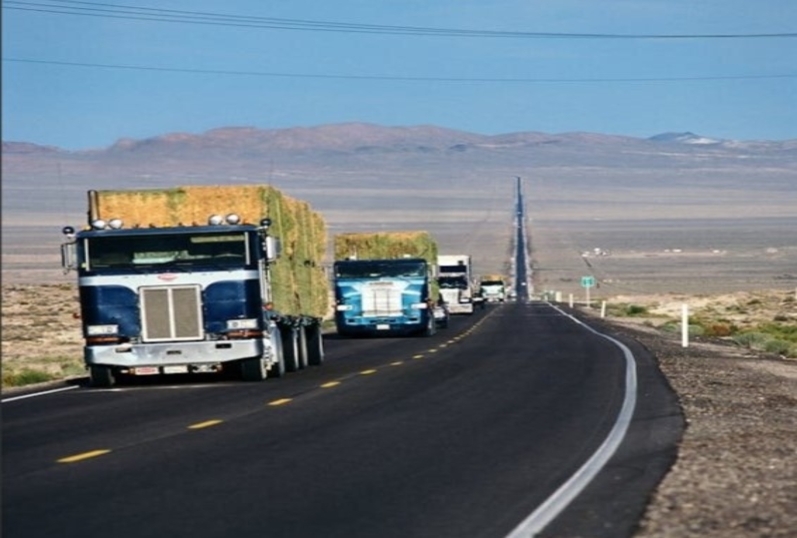
Cross-Border Trucking refers to the transportation of goods by truck across international borders. This mode of transportation is crucial for facilitating trade between countries, enabling the efficient movement of cargo while navigating complex customs and regulatory environments. Cross-border trucking offers flexibility, speed, and a direct route to markets, making it a popular choice for many businesses engaged in international trade.
Below is a detailed overview of cross-border trucking, including its key services, components, challenges, and market applications.
Cross-border trucking involves the transport of goods from one country to another using trucks. It typically includes a series of steps, including customs clearance, border crossing, and last-mile delivery. This mode of transportation is especially effective for short to medium distances and can serve as part of a multimodal logistics strategy.
Key Advantages:
Direct Delivery: Cross-border trucking allows for direct delivery from the sender to the recipient, reducing transit times compared to other modes of transport.
Flexibility: Trucks can access a wide range of destinations, including rural and remote areas that may not be served by rail or sea.
Cost-Effectiveness: For certain cargo types and distances, cross-border trucking can be more cost-effective than air or rail transport.
The following are the main services provided under cross-border trucking:
A. Freight Transportation
The core service of cross-border trucking is the actual transportation of freight across borders.
Key Services:
Full Truckload (FTL) Shipping: Transporting large volumes of goods that fill an entire truck, ideal for bulk shipments.
Less Than Truckload (LTL) Shipping: Consolidating smaller shipments from multiple customers into a single truckload, optimizing costs for shippers with less volume.
Temperature-Controlled Transport: Providing refrigerated or climate-controlled trucks for transporting perishable goods, pharmaceuticals, and other temperature-sensitive items.
B. Customs Clearance
Customs clearance is a crucial aspect of cross-border trucking, ensuring compliance with regulations and smooth passage through borders.
Key Services:
Customs Brokerage: Acting as intermediaries to facilitate customs clearance, preparing necessary documentation, and ensuring compliance with regulations.
Tariff and Duty Management: Calculating applicable tariffs and duties for shipments, ensuring that all fees are properly accounted for and paid.
Risk Assessment: Conducting assessments to identify potential compliance risks associated with cross-border trucking.
C. Logistics and Route Planning
Effective logistics and route planning are essential for optimizing cross-border trucking operations.
Key Services:
Route Optimization: Analyzing and planning routes to minimize transit times, fuel costs, and delays, taking into account factors such as border wait times and road conditions.
Real-Time Tracking: Implementing GPS and tracking technology to provide real-time visibility of shipments, allowing customers to monitor progress and status.
Last-Mile Delivery Coordination: Managing local delivery logistics once goods have crossed the border, ensuring timely delivery to final destinations.
D. Warehousing and Distribution
Cross-border trucking often requires warehousing solutions for efficient cargo handling.
Key Services:
Cross-Docking: Facilitating the direct transfer of goods from incoming trucks to outgoing trucks, minimizing storage time and improving efficiency.
Temporary Warehousing: Providing storage solutions for goods awaiting customs clearance or final delivery, ensuring proper inventory management.
Consolidation Services: Offering consolidation services to combine smaller shipments into larger loads for transport efficiency.
Cross-border trucking can present several challenges that logistics providers must navigate effectively.
Key Challenges:
Regulatory Compliance: Each country has its own customs regulations, tariffs, and import/export requirements, making compliance complex.
Customs Delays: Customs procedures can lead to delays at border crossings, affecting overall transit times and supply chain efficiency.
Infrastructure Limitations: Varying levels of infrastructure quality across borders can impact the reliability and speed of trucking operations.
Language and Cultural Barriers: Communication challenges may arise due to language differences and varying business practices across countries.
Technology plays a vital role in enhancing the efficiency and reliability of cross-border trucking operations.
Key Services:
Fleet Management Systems: Utilizing technology to manage trucking fleets, optimize routes, and monitor vehicle performance.
Automated Documentation: Streamlining the documentation process through automation, reducing errors and expediting customs clearance.
Data Analytics: Leveraging data analytics to improve decision-making related to route planning, fuel efficiency, and risk management.
Cross-border trucking is applicable across various industries, including:
E-commerce: Facilitating the rapid shipment of goods to meet consumer demand in international markets.
Manufacturing: Sourcing raw materials or components from different countries, ensuring timely delivery to production facilities.
Agriculture: Transporting agricultural products across borders to access international markets and meet demand.
Automotive: Coordinating the movement of vehicle parts and finished cars between manufacturing plants and distribution centers in different countries.
Cross-border trucking is a vital component of international logistics, enabling the efficient movement of goods across borders while navigating complex regulatory environments. By providing integrated services such as freight transportation, customs clearance, and logistics planning, trucking companies can facilitate global trade and enhance supply chain efficiency. The focus on technology integration and effective risk management further enhances the reliability and value of cross-border trucking, making it an essential solution for businesses seeking to expand their reach in international markets.